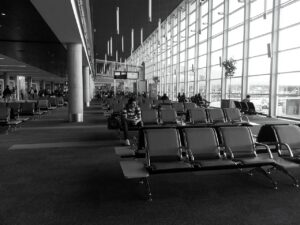Travel came to a standstill as the pandemic began. Minus travelers, hotels, gift stores, and restaurants in places across the United States struggled to stay open. Employees were let go since there were no consumers. Leisure and hospitality employment accounted for 34% of all pandemic job losses, the highest percentage of any industry in the United States.
Many Americans are eager to fly again after two years of social isolation and working from home — plus a couple of delayed reopening due to the delta and omicron versions. As a result, employees in the hospitality industry are in great demand.
The service industry labor market, which formerly favored employers, is now giving workers bargaining power to obtain higher pay and benefits.
“There’s a theory of the vicious cycle of tourism and we’re in that cycle right now,” said Maggie Daniels, professor of tourism and events management at George Mason University.
The cycle is driven by a mismatch between supply and demand, one that’s overwhelming businesses and resulting in diminished experiences for customers and workers alike.
On the demand side, “people have been delaying their vacations, they’ve been delaying their family events for two years, and they are just ready to cut loose,” said Daniels.
There’s so much pent-up demand that popular tourist destinations are being overwhelmed. Take national parks. “There’s a carrying capacity issue, that has been far exceeded, and the parks are scrambling. They’re underfunded, they’re understaffed,” Daniels said.
This entails crowds, bottlenecks, increased pricing, and a lot of annoyance for tourists. This leads us to the supply side, where front-line employees are the ones that face the brunt of client displeasure.
Many of them have departed the business. According to the non-profit United States Travel Association, leisure and hospitality employment is down 8% from pre-pandemic levels, with 1.8 million job opportunities expected to be filled by December 2021.
The remaining employees are increasingly overworked, and enterprises are understaffed.
However, Larry Yu, professor of hotel management at George Washington University, believes that it is a fantastic moment to work in the hospitality sector.
“The pandemic made the industry aware that what we call the human resources, and now we use the term ‘talent,’ are even more critical for business,” he said.
Businesses have begun to provide greater wages and perks. “The hospitality business is one of the industries with the largest salary growth,” Yu noted. This may be difficult for small firms, and some are getting inventive.

















More Stories
Mama Shelter Zurich Opens, Bringing Playful Design and Swiss Heritage to the Heart of the City
Fintech Revolutionizes Travel: From Seamless Payments to AI-Driven Personalization
Hyatt House Noida Sector 140A to Launch New Extended Stay Experience